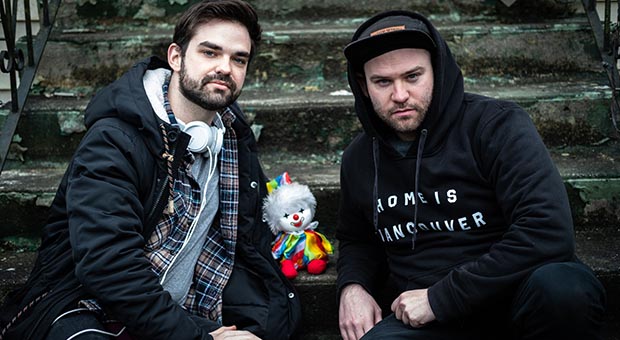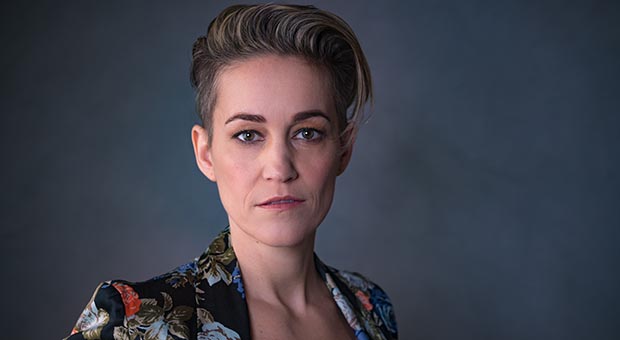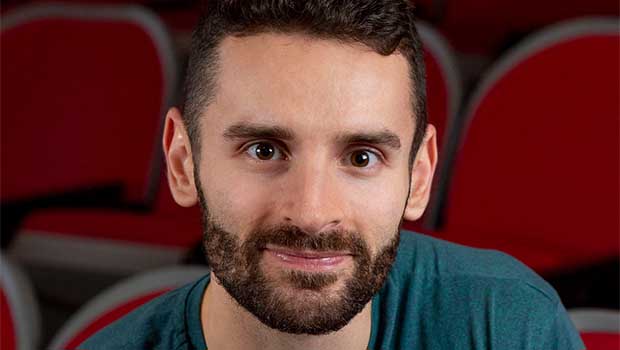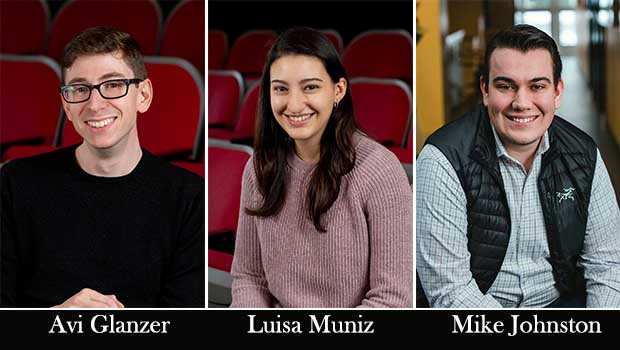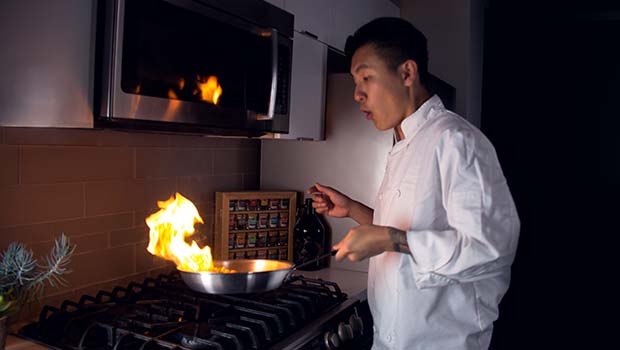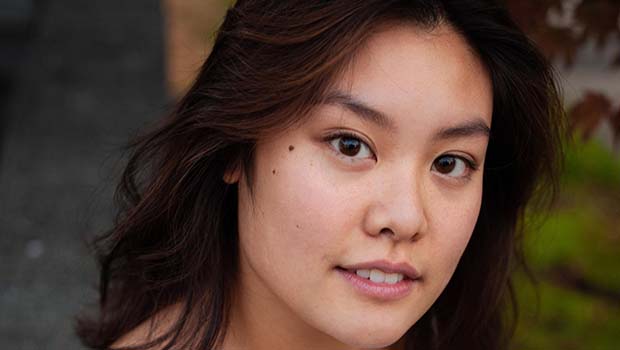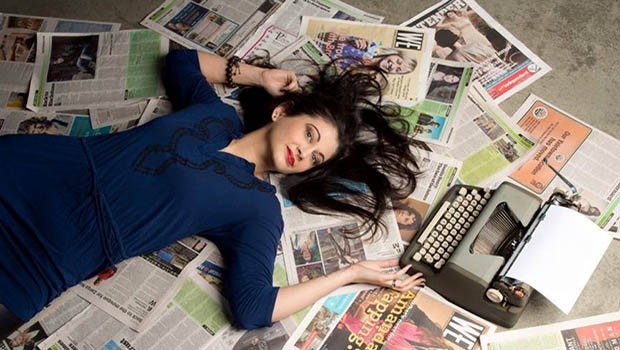
21 Jan The Biz Interview: Sabrina Furminger
For over five years, Sabrina Furminger has been in the trenches of Vancouver’s entertainment industry putting names to faces and stories to subjects while bringing groundbreaking and relevant topics out into the open for her ever-growing and fiercely loyal readership.
Her newest project is YVR Screen Scene, a brand new site and podcast platform that represents the next evolution of her commitment to bringing the inside stories of Vancouver’s entertainment industry to life.
We spoke to Sabrina Furminger about YVR Screen Scene, the ever-changing entertainment media landscape, and what her work means to her.
________________________________
Can you start by telling us a little bit about you and YVR Screen Scene?
I’ve been covering the Vancouver film and television industry for more than five years now, mostly through Reel People, a weekly column I wrote for The Westender from March 2014 until the paper shuttered in December 2017. I love writing stories about storytellers; I’m not interested in gossip or box office receipts. I love the substance of screen stories – be they web series, shorts, television shows, documentaries, animation, or feature films – and I am forever fascinated by the people who nurture them from concept to the screen. Film and television is a people-powered, storyteller-driven endeavor, and through YVR Screen Scene, I aim to pull back the curtain on the local industry and reveal its beating heart: the people who power it.
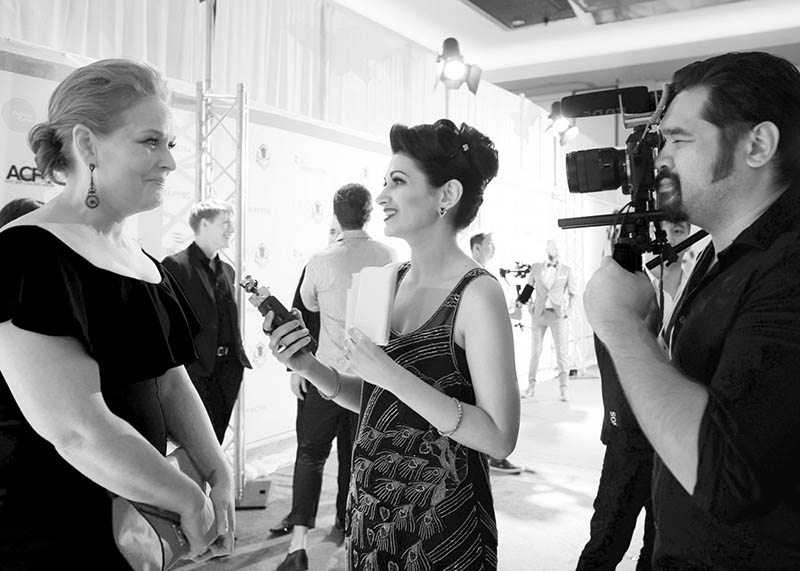
What can readers expect from YVR Screen Scene?
I’ll be publishing two interview-driven feature articles per week (at least!) featuring insights and anecdotes from artists who work in the Vancouver screen scene, be they established or emerging actors, directors, writers, producers, or crew. I feel like we really set the tone for YVR Screen Scene in its first few weeks: interviews with Amanda Tapping, John Cassini, Agam Darshi, Lee Majdoub, Christopher Russell, Vincent Tong, Christina Sicoli, and the filmmakers behind Adventures in Public School and Scout & the Gumboot Kids. Every single interview went beyond the “I made this show and here’s what it’s about” level that permeates entertainment journalism, whether it was Amanda talking about the sexism she faces as a director, or John talking about his troubled teen years and finding his purpose through acting. I want to appeal to fans, industry insiders, and people who just love reading about other cool human beings.
Over the next couple of weeks, I’ll be introducing our first columnist (I’m keeping his name under my hat for now, but I’ll tease that he’s a well-regarded film, TV, and stage actor and playwright who will be writing on social justice issues; I’m next-level excited to share his work with YVR Screen Scene readers). And in March, I’ll be launching the YVR Screen Scene podcast, which will bring listeners into my funny, revelatory, engrossing, inspiring, and illuminating conversations with Vancouver’s shining stars.
I’ve developed trust and genuine relationships with many people within the film and television industry. This isn’t just the industry I cover; this is my community, and I take my role in the community very seriously. I follow careers; I celebrate milestones and seek to understand and contextualize challenges and setbacks. What this means for YVR Screen Scene readers is that they’ll find insights into the business and the work that they won’t find anywhere else.
How did you get started in the media and what inspired you to cover entertainment?
I’ve always been a writer, and I’ve always been a storyteller; I “published” my first magazine when I was 8-years-old, writing articles about my family and dogs on my grandma’s old typewriter and then begging my dad to photocopy them at work. My journey to this particular moment in my life has included stints as a student journalist, an evenings-and-weekends reporter at Canada’s oldest daily newspaper, a jack-of-all-trades freelance writer, a 5-year detour into arts publicity, and then to what I consider my calling: entertainment journalist. Entertainment journalism found me. My husband works in the industry (Paul Furminger of Fish Flight Entertainment), and the first person I ever got to observe working in the film industry was his best friend, actor and stunt artist Darren Shahlavi, who died in 2015. Through Darren, I saw how thoroughly unglamorous a life in the ’biz can be; how many times people usually hear no before they hear a single yes (and how much time can pass between those yeses); how much resolve and chutzpah is required to stay the course and build your skills. My Westender column was called Reel People, and Darren was the first reel person I ever knew.
I started writing about the industry in earnest during the dry days of the #saveBCfilm campaign, when studios were sitting empty across the city and other media outlets were cutting back on their film and TV industry coverage. But – and here’s where I must give credit to Martha Perkins, my first editor at The Westender who green-lit Reel People and pulled me to this next level of my career – I pitched and wrote story after story about the film and TV workers who were creating their own work, who were compelled to create in the hungry moments because they’re artists, and their work matters, even when there’s not a ton of money behind them. My admiration for these artists is endless. Sharing their stories is my raison d’être.
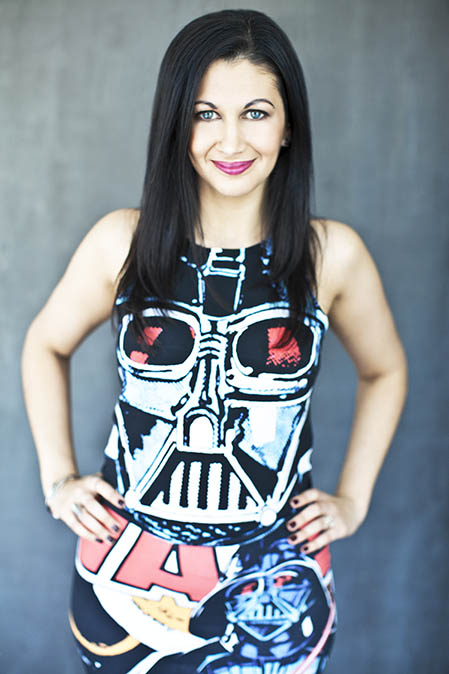
_________________________________________
“I’ve developed trust and genuine relationships with many people within the film and television industry. This isn’t just the industry I cover; this is my community, and I take my role in the community very seriously.”
_________________________________________
What’s the most rewarding thing about your work?
I love the interviews most of all, especially those hour-plus conversations where we go deep and a portrait of an artist begins to emerge. They’re the part of the work in which I feel most inspired, and they don’t feel like work at all. While I do prepare questions in advance (and conduct an appropriate amount of research in the process), the questions are more of a suggested roadmap than anything else. My interviews are often difficult to transcribe because they’re organic and free-flowing. Sometimes, they’re even true heart-to-hearts where we both share something of ourselves (as happens with dear Amanda Tapping every single time. Every. Single. Time).
I love drawing attention to film, television, and digital projects that deserve more eyeballs. I love exploring social justice issues, whether they’re the driving theme of a film or someone’s off-screen life, be it poverty, sexism, racism, post-partum depression, body image, grief, or the challenges associated with being an other or staying true to who you are. I love when I’m telling someone about an article I wrote, and they exclaim, “That was you?! I read that!” Writers need people to write about, and they need readers. I cherish both.
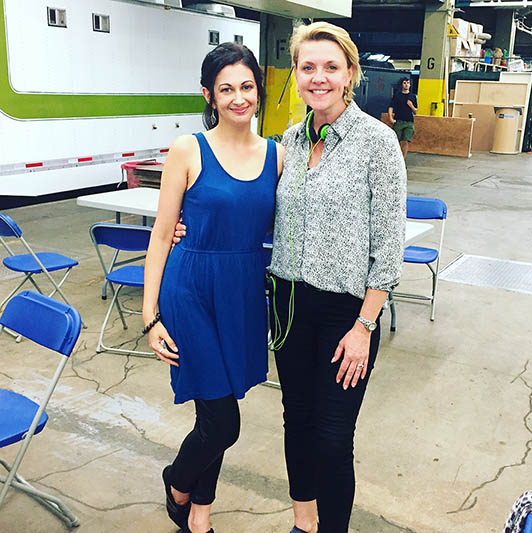
Which career highlights are you most proud of?
I’m most proud of the numerous articles I’ve written in which the interview subjects have trusted me with their deeply personal stories, including Amanda Tapping, Nicole Oliver, John Cassini, and Attiya Khan.
I’m proud of the cover story I wrote in October about the #metoo movement which featured several brave women – Chelah Horsdal, Enid-Raye Adams, Sarah Deakins, Jacquie Gould, and Lisa Ovies – speaking out about sexual harassment and violence they’d faced on set and in the industry. I am proud of those women, full-stop. Also: interviewing Star Trek icon Nichelle Nichols and broadcasting legend Peter Mansbridge were dreams come true. Oh, and interviewing the OG cast of Degrassi Junior High! And Spike from Buffy the Vampire Slayer! Yeah; I’m a nerd. I’ll cop to that.
I’m proud to have hosted the Q&A after the screening of Rachel Talalay’s film On the Farm, about the women who were preyed upon by serial killer Robert Pickton. I was changed by the presence that night of so many brave family members whose lives were forever changed when Pickton stole their mothers, daughters, aunts, and sisters from them. You can read more about the film here and watch it here.
I’m proud to have been the first recipient of Women in Film and Television Vancouver’s Iris Award for shining a spotlight on female filmmakers, performers, and storytellers in my column.
What’s the best thing that someone can do to be prepared for an interview with you?
Don’t be scared! I’m not looking for a “gotcha!” moment, or to make you look bad. It’s not a test; you can’t fail an interview with me. Trust that you have something to share. Be prepared to have a conversation with someone who is genuinely interested in your work and ideas. Be flexible to go with the flow of the conversation.
From your standpoint, where do you see the future of the entertainment media going and how does YVR Screen Scene fit in with that?
We are in the midst of a seismic shift. Traditional media (print, radio, and television) is scrambling to adapt in the age of social media, smart phones, and limited attention spans, and we are losing some important media outlets in the process (my previous employer among them). But it’s also an exciting time, for me and other independent journalists and podcasters looking to own our content and reach a wider audience. I’m looking at my numbers for these last couple of weeks, and at least half of my readers are located outside of Canada. So while our stories are hyper-local – because they’re about Vancouverites, and work created in Vancouver – there’s an interest in these stories that extends around the world.
I’ll also add that I’m not the only journalist covering the Vancouver film and television industry, but I’m one of the few covering it from the inside and centering it on the people who push it forward.
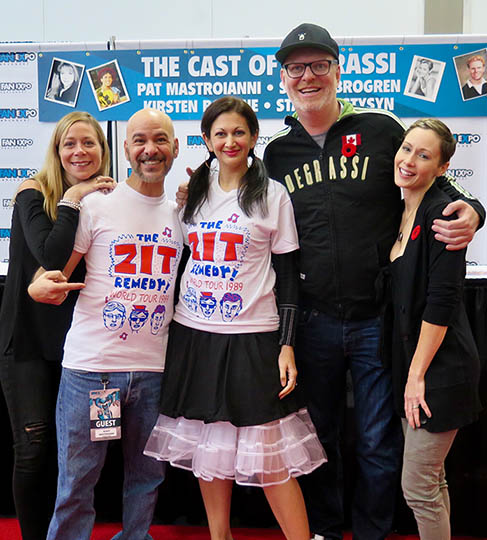
What’s the biggest misconception about entertainment journalists?
There are many misconceptions: We’re all interested in gossip and red carpet fashion. We value big names over working actors, and films and network television over web series and indie projects. We’re ignorant and superficial. We’re not Serious Journalism.
How has the Vancouver film and television industry evolved during your time covering it?
When I started covering the industry in earnest, it was during the #SaveBCFilm campaign, and obviously the service side of the industry has bounced back since those hungry days. What I’m noticing now, however, is how difficult it’s becoming for independent filmmakers to make their projects. The service side is almost too busy. Indie productions can’t crew up. They can’t secure locations or talent. They can’t compete with The CW and Hallmark, and they shouldn’t have to; in a perfect world, the service side would feed the indie side, but there’s almost no time for that to happen. This should concern those of us who care about local stories. Local stories matter. They need to be valued and celebrated and nourished as much as the service work. For the culture!
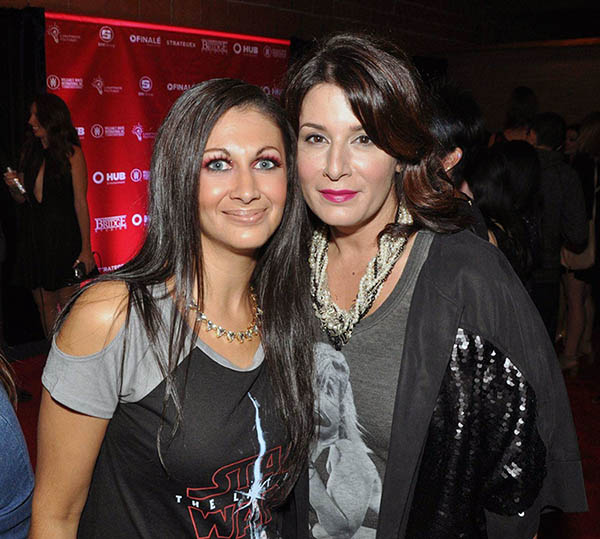
In your opinion, why has Vancouver remained a successful industry hub?
It begins and ends with people – the reel people. Yes, sure, Vancouver has killer natural beauty, top-notch studio infrastructure, and tax benefits, but our most important feature is our concentration of industry professionals.
Do you have any favourite books and authors relating to the film and television industry?
Unsurprisingly, I love memoirs. Favourites include Wishful Drinking by Carrie Fisher; Lauren Bacall’s By Myself; Beyond Uhura: Star Trek and Other Memories by Nichelle Nichols; Bryan Cranston’s A Life in Parts; Where There’s Smoke…: Musings of a Cigarette Smoking Man by Vancouver’s own William B. Davis; and Which Lie Did I Tell? More Adventures in the Screen Trade by The Princess Bride screenwriter William Goldman.
Where can we find out more about you and keep up with YVR Screen Scene?
Oh, I’m all over the place! YVR Screen Scene can be found at YVRScreenScene.com. I’m also on Twitter (@sabrinarmf and @YVRScreenScene) and Facebook. And if anyone would like to join the YVR Screen Scene Patreon community, they can find information here.
________________________________
Thanks to Sabrina Furminger for speaking with us! You can read her amazing work on YVRScreenScene.com.


